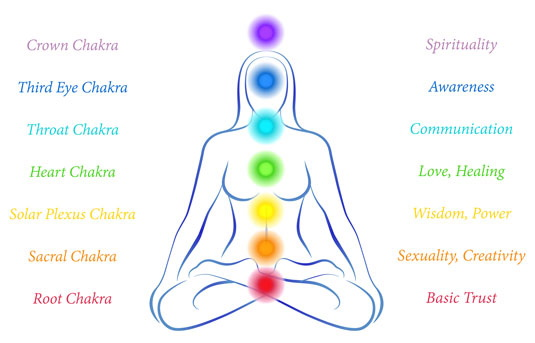
Reiki is a popular form of alternative therapy that involves channeling energy through touch for healing purposes. However, it has its downside like any other treatment. Some of the concerns are unrealistic expectations, emotional dependency, and unqualified practitioners. Addressing these issues will enable both healers and patients to make better decisions regarding their healthcare.
What are the potential dangers of Reiki?
Some potential dangers of Reiki include emotional dependence on sessions and unqualified practitioners giving false guidance. People may have false hope therefore neglecting necessary medical attention.
These risks underscore the need for certified practitioners who have realistic expectations about what Reiki can do for their clients. Emotional dependency arises when individuals seek temporary relief by going for many sessions without addressing their underlying problems.
There are also those who promise too much resulting in unrealistic hopes that make one not take care of oneself medically leading to poor health outcomes; hence there is no harm in selecting only competent providers who know what they are doing with this kind of stuff.
Can Reiki cause emotional dependency?
Yes, an individual may become emotionally dependent if they heavily rely on these meetings for comfort or consolation. This attachment could hinder personal growth thereby necessitating balanced use coupled with alternative methods aimed at achieving emotional wellness management.
The peaceful feeling associated with reiki can lead to someone wanting more peace thus frequent visits to achieve this state all the time; but when people depend entirely upon them they do not grow as humans because deeper issues within themselves remain untouched hence making them avoid such points themselves so as not to confront them alone.
Thus it would be advisable for therapists to facilitate self-care strategies among clients while integrating other therapies into personal development efforts thus ensuring a holistic approach toward healing.

Are there risks of using Reiki for serious medical conditions?
Yes, there is a risk if used instead of essential medical intervention during severe health conditions. Reiki should serve as a supplement not a replacement for professional healthcare services.
Using it as the main treatment could delay necessary steps towards recovery and worsen one’s condition leading to adverse outcomes on their wellbeing. People ought to consider reiki only as complementary care that enhances wellness rather than a cure for terminal diseases because failure will result in deterioration of patients’ state since critical treatments can be sidelined when solely relied upon.
In addition, communicating with health workers concerning its utilization would be prudent so that they are aware of recommended practices that have been shown to work well in combination with other therapies thereby ensuring holistic management.
How can unqualified Reiki practitioners pose a risk?
Unqualified reiki masters put people’s lives at stake by giving ineffective or dangerous treatments, providing misinformation, and ignorance of situations requiring medical attention. It is crucial to engage certified professionals who practice safely and have good reputation records for effective results during healing sessions.
Without proper training there may lack of skills required hence resulting in low-quality service delivery; they might also mislead clients through wrong advice given due to a lack of knowledge about what needs to be done under such circumstances.
Moreover, some symptoms may escape their notice thus leading to delayed diagnosis which may cost many lives in the worst scenarios. On the other hand, verifying qualifications helps prevent incompetent individuals from handling sensitive matters like this while getting recommendations ensures that one gets safe and satisfactory care.
What are the moral considerations of practicing Reiki?
Moral considerations in Reiki practice include client privacy, false claims of healing power, and informed consent. Health workers should follow the ethics code to foster trust and safeguard client welfare by being transparent and professional with their work.
Right conduct necessitates honest communication about what can be accomplished through Reiki so that expectations are realistic among customers. It is also important for healers not to say they can cure diseases but rather view this as an added technique in helping patients recover from illness.
Confidentiality must be upheld at all times while gaining permission from individuals before any session starts thus showing respect for their autonomy rights as well creating safe space where these two people can meet freely.

What is the impact of impractical expectations on the results achieved with Reiki?
Impractical expectations may cause disappointment if desired outcomes are not met thereby affecting reiki performance negatively leading to dissatisfaction. Educating clients about the capabilities of reiki will give them a balanced understanding which will enable them recognize its benefits and appreciating other necessary health interventions.
There is a possibility that some customers might anticipate miracles or instant relief; therefore, when such predictions fail it brings about frustration which lowers perception towards the efficiency of reiki coupled with decreased involvement from clients who had higher hopes Educating individuals on achievable targets while combining different medical methods promotes holistic wellbeing approaches thus maximizing contentment derived out of these processes.
Does Reiki conflict with traditional medicine?
When used correctly, reiki does not usually pose any risks to treatments offered by hospitals however substituting regular medical care with reiki can hinder the timely intervention required sometimes prioritizing necessary medical procedures over unnecessary ones.
It should always be utilized as supplementary therapy so that it enhances conventional healthcare instead of replacing it altogether. For this reason, there need to be effective channels through which clients can share information about reiki sessions they are undertaking with their doctors in order to harmonize it into a patient’s treatment plan. This approach will prevent misunderstandings between different stakeholders thus improving the overall effectiveness of both medical and reiki complementary practices.
Wrapping Up!
Reiki offers various possibilities for improvement, like increased relaxation and release of emotions but it still has its flaws too. By comprehending psychological, physical as well as ethical issues connected with reiki, people can be able to control their expectations towards it. Thereby reducing the chances of having negative encounters. Like other complementary methods, however, reiki should be used alongside conventional medical care rather than being substituted for them since they also have their own limitations.
